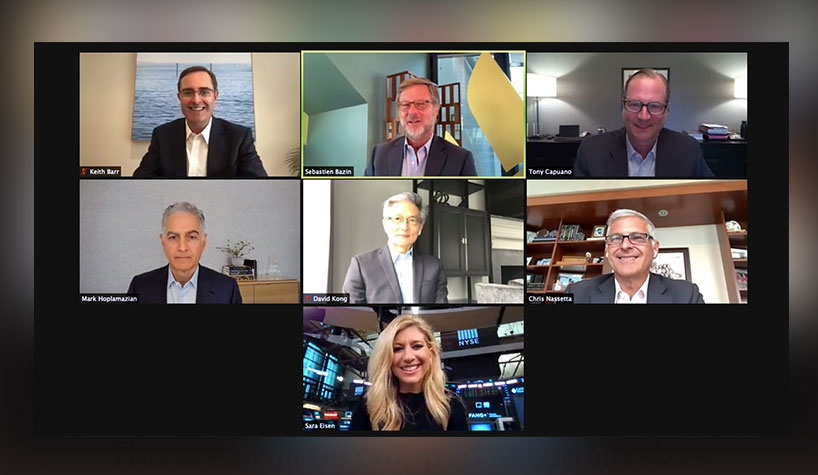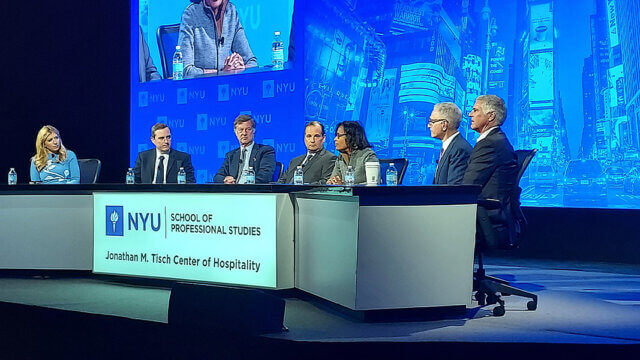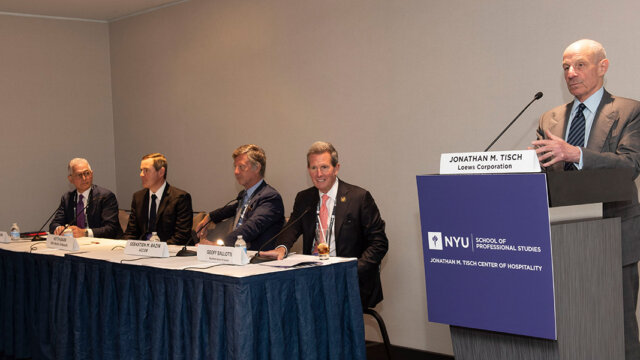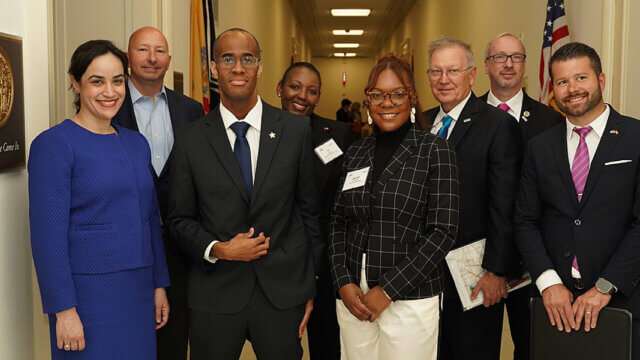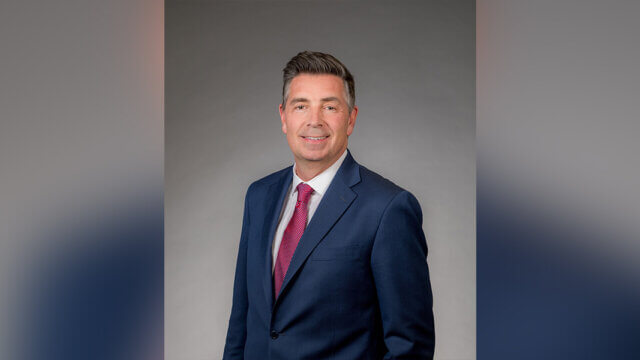On day one of the 43rd annual NYU International Hospitality Investment Conference, the biggest names in the industry gathered virtually for “The CEO’s Check In: Where Are We, Where Are We Going, and When Will We Get There?”
Moderated by Sara Eisen, anchor, “Closing Bell,” CNBC, the panelists included Keith Barr, CEO, IHG Hotels & Resorts; Sébastien M. Bazin, chairman/CEO, Accor; Tony Capuano, CEO, Marriott International; Mark S. Hoplamazian, president/CEO, Hyatt Hotels Corporation; David Kong, president/CEO, BWH Hotel Group; and Christopher J. Nassetta, president/CEO, Hilton.
More than one year into the global pandemic, the leaders accessed current challenges, opportunities and signs of growth among other pertinent issues surrounding the state of travel.
The session opened with optimism as the leaders reflected on collective success from the past Memorial Day Weekend, pointing to signs of a strong summer season.
“We’re on a solid road to recovery,” Nassetta noted. “We will all have the best leisure summer in the history of the business, that means occupancy and rates, the laws of supply and demand and economics are alive and well.”
Nassetta added that business transient and group will be a little bit longer to come back, but what the industry is witnessing—real reasons for optimism—is evidence that in parts of the world like China, where business travel and group business are already coming back, and even in markets inside the U.S. that are further advanced and have opened up sooner, is pent-up demand.
“It’s evident that people will be moving away from product to move to experience more authenticity, privacy, space and discover nature—it’s all about fulfillment,” Bazin said. “A lot of us are going to have to be better at it. You have to be a curator and be there before, during and after the stay. Local gastronomy, culture—you have to be a caretaker.”
Infusing hyper-locality while taking on a “caretaker” role as Bazin describes takes great talent, a challenge that the industry was facing even pre-pandemic.
“The talent and teams of each of us are so critical,” Bazin said. “My biggest worry over the next few weeks is do I have enough talent to service all of my clients…We need to seduce other groups that are probably greater risk, people not as well trained, but we just have to just go for it.”
According to Kong, the industry has to not only counter the significant layoffs it made last year, but battle some of the big boys like Amazon who are building up plans as he describes, with an economy that is very strong and bolstering other industries.
“That bodes well for the business segment, but it also takes jobs away from the hotel industry,” Kong said. “People don’t feel safe being in our industry. They don’t feel they have job security…We have to do a much better job at providing a better environment for our teams so they stay.”
Hoplamazian shared this sentiment, explaining that, in the past, hospitality didn’t compete with retail or distribution centers, but is competing with them now. He did, however, present some possible ways to ease the pain.
“We’re thinking about employing people of disadvantaged backgrounds or underserved communities, from foundations that we’re focused on,” Hoplamazian said. “[In terms of] business recovery—tech exec after tech exec said we’re never returning to the office and cutting business travel by 50%. It became a sexy headline, but anyone making predictions in the middle of a pandemic should really reconsider.”
The execs believe that business travel recovery, although slower, will and has to come back.
“People have made do by necessity, but if you talk to a partner from any consulting firm and you ask them what their plans are [for business travel] and they may say ‘We may moderate a bit,’ and then you’ll say, ‘What happens the first time that you decide to try and make a pitch via technology and your primary competitor makes the trip?’ Their quick response is, ‘Well then all bets are off, and we’re right back to traveling the way we were pre-pandemic.’ I believe that,” Capuano said.
Nassetta believes this to be true as well, noting that underneath all of this travel, whether it’s leisure, business or bleisure, is just pent-up demand that typically takes years to restore, but the laws of economics will take over.
“When we wake up in two years, what will surprise us is that the slope of recovery will be steeper than any of us would be thinking, we’ll be getting rate integrity back,” Nassetta said. “We typically go through years of trying to rebuild rate integrity.”
Barr said that business travel will eventually return, but that the industry is in more of a transitionary period as vaccines go up and that the industry should remain focused on its owners and global travel restrictions. “The government needs to be focused on supporting owners and the industry to drive growth, opening up travel corridors and lifting travel restrictions,” he said.
The session closed with each exec giving advice to aspiring hotel leaders, who may have been dissuaded by the pandemic. Capuano advised these young people to not be discouraged, but inspired to take advantage of the changing world as an opportunity to learn.
“Travel and tourism is a lifetime industry, it’s going to come roaring back,” he said. “It’s not an industry that developed in the last decade or the last century, it’s been going on since the start of humanity.”
